Thursday, March 31, 2005

Anne Sexton (1928–1974)

Yesterday I picked up
The Awful Rowing Toward God, a book of poems by Anne Sexton. I first discovered her poetry when I was 18. She is personal and straightforward and she hooks you in. Sometimes she's the fast talking paranoid who slams words together, sometimes she is just around the corner from peace. She can see it in her hands, but then she can't.
I can feel her awful rowing, her tremendous struggle with her words. I see her rowing and rowing and rowing. She is trying to get closer to God, but it doesn't work. All her effort is just bringing her closer to death. I want someone to hold her hand, kiss her forehead, and quiet the rush of thoughts. I want her to walk away from the typewriter and find some solitude. Instead, Anne Sexton killed herself at age 45.

From
Rowing...I grew, I grew,
and God was there like an island I had not rowed to,
still ignorant of Him, my arms and my legs worked,
and I grew, I grew,
I wore rubies and bought tomatoes
and now, in my middle age,
about nineteen in the head I'd say,
I am rowing, I am rowing
though the oarlocks stick and are rusty
and the sea blinks and rolls
like a worried eyeball,
but I am rowing, I am rowing,
though the wind pushes me back
and I know that that island will not be perfect,
it will have the flaws of life,
the absurdities of the dinner table,
but there will be a door
and I will open it
and I will get rid of the rat inside of me,
the gnawing pestilential rat.
God will take it was his two hands
and embrace it.
As the African says:
This is my tale which I have told,
if it be sweet, if it be not sweet,
take somewhere else and let some return to me.
This story ends with me still rowing.
 The Poet of Ignorance
The Poet of IgnorancePerhaps the earth is floating,
I do not know.
Perhaps the stars are little paper cutups
made by some giant scissors,
I do not know.
Perhaps the moon is a frozen tear,
I do not know.
Perhaps God is only a deep voice
heard by the deaf,
I do not know.
Perhaps I am no one.
True, I have a body
and I cannot escape from it.
I would like to fly out of my head,
but that is out of the question.
It is written on the tablet of destiny
that I am stuck here in this human form.
That being the case
I would like to call attention to my problem.
There is an animal inside me,
clutching fast to my heart,
a huge crab.
The doctors of Boston
have thrown up their hands.
They have tried scalpels,
needles, poison gasses and the like.
The crab remains.
It is a great weight.
I try to forget it, go about my business,
cook the broccoli, open and shut books,
brush my teeth and tie my shoes.
I have tried prayer
but as I pray the crab grips harder
and the pain enlarges.
I had a dream once,
perhaps it was a dream,
that the crab was my ignorance of God.
But who am I to believe in dreams?

From
Jesus, the Actor, Plays the Holy GhostOh Mary,
Gentle Mother,
open the door and let me in.
A bee has stung your belly with faith.
Let me float in it like a fish.
Let me in! Let me in!
I have been born many times, a false Messiah,
but let me be born again
into something true.
 The Fury of Sunsets
The Fury of Sunsets (from The Death Notebooks)
Something
cold is in the air,
an aura of ice
and phlegm.
All day I've built
a lifetime and now
the sun sinks
to undo it.
The horizon bleeds
and sucks its thumb.
The little red thumb
goes out of sight.
And I wonder about
this lifetime with myself,
this dream I'm living.
I could eat the sky
like an apple
but I'd rather
ask the first star:
why am I here?
why do I live in this house?
who's responsible?
eh?
Wednesday, March 30, 2005

March Reading
I haven't read many books this month because I read all of my old journals, which took up about a week's worth of reading. And, I kept starting books and chucking them. I picked up about 10 books at the library about Iran.
I really enjoyed
Reading L0l1ta in Tehran and wanted to explore Iran more. I picked up a book about Khomeini, a book about the Shah, a book about the history of Iran, and another handful of fiction and non-fiction books that told personal stories about Iran.
I got half-way through a book on the Iran Hostage Crisis and decided it was too much analysis. Besides an interesting children's book about the Iran-Iraq war, the only book that sucked me in was
To See and See Again. Everything else was just too dry or too flowery or just didn't sit right with me.
 Jane Austen: A Life
Jane Austen: A Life by Claire Tomalin
This book was really wonderful. It brought Jane's world to life. Unfortunately, there isn't much to go on to really discover Jane's life itself. We have more information about her neighbors, her brothers, and her cousin than we do about her. I was left feeling quite frustrated about the letters that Jane's brother had carefully preserved, only to have his daughter destroy them.
There were times in the book when I felt like the author was putting a modern spin on the family's choices and lifestyle. In the beginning, she writes of Jane's mother having another child as if it were an obvious burden. She writes of a woman who was kept perpetually pregnant by her husband. These things may well be, but I wouldn't rule out the woman's own choice in such matters.
I would have loved to have read more about Jane's single love interest, Tom Lefroy, but unfortunately there just isn't any information. What I did learn about Jane was interesting and in the end, poignant. The book painted a hazy, yet lovely, picture of Jane.

To See and See Again by Tara Bahrampour
JUST BEFORE I TURNED TWELVE, MY FAMILY DROVE TO OREGON to outrun the spring. Every time it looked like we were going to stay in one town, the weather would warm up and my father would pluck us out of the life we were considering and swing us back north on the highway. I think that deep down he believed that acknowledging the change of seasons would mean admitting we were in America to stay.
Tara's father is Iranian and her mother is American. As a child, she lives in the U.S. for a time and then in Iran. In 1979 their family returns to America. This is her story of the loss of her home, finding her place in the U.S. and then finding a second home in Iran.
Tara is a little older than me and while her life was quite different from mine, her recollections remind me of my childhood. In Iran, she sings songs from Grease, she watches Little House on the Prairie and The Wizard of Oz. After coming to America, she watches Roots in her hotel room, she feathers her hair, goes rollerskating, buys Nikes and goes shopping at the Gap. She wants to fit in and she does.
In America, first wives do not sit around to help raise the children of second wives. In America, if I heard about a grown man marrying a ten-year-old or kidnapping a teenager from her father's house I would consider him a criminal. But here in the village none of this is so clear.
As an adult, Tara goes back to Iran, and has the opportunity to see again. She feels keenly her American self and Iranian self. She lets us into the tug and the pull of her memories and her identity. We get to see Iran as she does, as an outsider and an insider.
This is an interesting read. Tara vividly remembers life before and leading up to the revolution in Iran and her transition from life in Iran to America. She lets us in as she discovers her family and herself.
Tuesday, March 29, 2005

when i grow up i wanna be an old woman
 In the summer we'll sit in a field and watch the sun meltIn the winter we'll sit by a fire and watch the moon freeze- Michelle Shocked
In the summer we'll sit in a field and watch the sun meltIn the winter we'll sit by a fire and watch the moon freeze- Michelle ShockedLillie wants to be a make-up artist when she grows up. She used to want to be a ballerina or a ballet teacher. She has taken to wearing make-up quite a bit lately. When she used to get into my make-up, you'd know it right away. She'd have dark purple over and under her eyes, and lipstick on her forehead and cheeks. Now, you don't notice it at first because she's carefully put a little peach or pink above her eyes and just a touch of lipstick on her lips. I said something about it once and she said, "Mom, the trick is to
blend it." Good advice.
When Grace was little she wanted to write children's books, draw pictures for children's books, be a librarian (because she thought they made the books), and be a basketball player. When she was 8 she decided she wanted to be a presidential historian. Now, she is really into dogs (and I mean into dogs - memorizing the breeds, the types of eyes, tails, head shape, etc).
When you ask her what she wants to be, she simply says she doesn't know.
I always wanted to be an artist. I loved to draw and paint growing up and it seemed like a romantic job. More than that, I wanted to be a mom and it seemed like a job I could have and still be a mom at home (my mom was a teacher - daycare and preschool weren't traumatic or anything, but I wanted to be home).
I'm not an artist. The job I have didn't even exist when I was a little kid thinking about what I wanted to be (and I don't think little girls now say, "I want to be a web publisher" because even I don't really know what that means).
I'm very happy with my work and I don't think being an artist is a very realistic job. Few people actually make money on charcoal sketches and oil paints. But, I do think that I should keep up the hobby more.
Big surprise, the future isn't what it used to be. But, in it's own way, it's better.
Monday, March 28, 2005

brilliantly funny

Soul Survivor
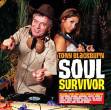
In 1994, my good friend
Crapples came up with the worst song ever. The title: Soul Survivor (that's right S-O-
U-L).
A few years later, I saw that Gloria Gaynor had a book out titled Soul Survivor. And, she was serious. A few days ago, I noticed the Rolling Stones actually have a song called Soul Survivor.
So, I did a search, and there are a lot of people who think this crappy title is meaningful. There are actually more Soul Survivors than there are Sole Surviors.
On Amazon there were 204 results for books and 22 for popular music. There are 11 albums with the title. There are three movies called Soul Survivor (one about James Brown). Destiny's Child has a book called Soul Survivors. There is a series of books called the Soul Survivor series. There are at least five books of fiction that have Soul Survivor in the title and seven books of non fiction.
I thought Crapples was a comic genius. It's still good comedy, but now it also seems kinda sad.
Saturday, March 26, 2005

random acts of desperation
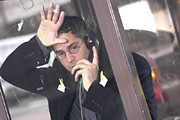 Pris'
Pris' post about a funny phone conversation made me think of one I had a few years ago. His has a better punchline, but whatever.
Me: Hello?
Some guy: Hello?
Me: Hello?
Guy: Do you know who this is?
Me: No.
Annoying Guy: Guess.
Me: Uh, no thanks.
Really Annoying Guy: C'mon just guess who this is!
Me: I have no idea.
Persistent Guy: Just guess.
Me: Okay, Tom.
Needy Guy: Who is Tom? Okay, try again.
Me: I really don't want to.
[this goes on much longer than it should]
Needy Annoying Guy: C'mon, guess!
Me: I'm pretty sure I don't know you. Do you know who
I am?
Embarassed Guy: Um, Cathy?
Me: Sorry, you've got the wrong number.
Hopeful Guy: Oh, sorry. You sound really cute. What's your name?
Me: I'm married.
Trying to meet a girl on a wrong number? How sorry is that?
At BYU, we had a group of guys randomly dial our number who wanted to meet us. My friends thought they sounded cute, so we went. Yeah, guys that call girls randomly aren't nearly as cute as they are desperate. We also had a missionary who wrote us because he knew the girls who lived in our Heritage Halls apartment the year before. That's a little funny, but still pretty pathetic.

Songs that make me feel sick in my tummy
..but in a really good, nostalgic way.
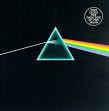
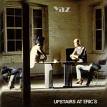

1.
Vera by Pink Floyd
2.
Sister Christian by Night Ranger (just because it's crap doesn't make me less sick)
3.
Good Feeling by the Violent Femmes
4.
Thorn in My Side by The Eurythmics
5.
Cross Roads by Don McLean
6.
The Lovecats by The Cure
7.
Red Rain by Peter Gabriel
8.
Begin the Begin by R.E.M.
9.
Sweaters by Laurie Anderson
(I no longer love the color of your sweaters. I no longer love the way you hold your pens. and pencils.)
10.
I Couldn't Hear Nobody Pray by Kathleen Battle
11.
Tempted by Squeeze
12.
Midnight by Yaz
13.
Back to the Old House by The Smiths
14.
Alison by Elvis Costello
15.
Every day is like Sunday by Morrissey
16.
I Kicked a Boy by The Sundays
17.
This Old Guitar by John Denver
18.
Moon Shadow by Cat Stevens
19.
Blue Moon by The Cowboy Junkies
20.
Moondance by Van Morrison
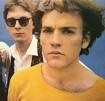
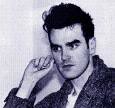

Friday, March 25, 2005

the killers

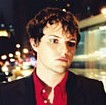

I just bought The Killers'
Hot Fuss. I'm fully enjoying it. If I were the type of person who got crushes on movie stars and musicians, I'd have a crush on Brandon Flowers (I had crushes on Shaun Cassidy, Andy Gibb and Elvis in elementary school, but nothing really like that since).
I've been trying to figure out who Brandon Flowers reminds me of. I've decided he looks like a cross between Ben Affleck and Robert Smith. The band sounds like a cross between The Cure (you can just hear Robert Smith singing "'Cause I'm Mr. Brightsah-ide"), New Order and, oh yeah, Ben Affleck a little bit.



Thursday, March 24, 2005

Invoking Hitler

Lately I've heard a lot of people invoke Hitler and the Nazis to try to punctuate their point. Yesterday, I was stumbled onto a blog that had this:
"Bush/Hitler: Same Crap. Different a--holes."
Cute. That's cute and sassy. Just what the world needs. More cute and sassy comments about Hitler.
I'm not here to be an apologist for Bush. I don't really like Bush, but he doesn't inspire any hatred in me.
What I don't like is people trying to pack a big emotional punch by comparing current situations to Hitler when it just doesn't fit. It's not the same. The Terri Schiavo case is sad and complicated, but it is not the beginning of Nazi Germany. This is not Auschwitz.
I know that some people really, really hate Bush. They think he is a real jerkstore. And, it's tempting to compare him to the biggest jerkstore they can think of, Hitler. But any comparisons just diminish the evil that was Hitler and the real tragedy of the Holocaust.
Hitler killed over six million people. He shoved them into gas chambers and killed them as rapidly as technology would allow him. You may not like Bush's policies, you may feel very strongly that Terri Schiavo has the right to life. But, calling people you don't agree with Nazis, brownshirts, and fascists simply belittles the real horrors of the 20th century.
Wednesday, March 23, 2005

finding a lump

 "sweet fancy moses" [nothing to do with this post, but what kind of picture am I going to put up? A mammogram? A biopsy needle?]
"sweet fancy moses" [nothing to do with this post, but what kind of picture am I going to put up? A mammogram? A biopsy needle?]In October 2003 I went in for a check up. There is a small lump in my right breast that I first found in 1992. Everytime I go to a new doctor I point it out to them and they always say that it appears to be just tissue. This time the doctor found another lump, and (I think because I'm older) she took the lump more seriously and sent me to a clinic for a mammogram.
This is what I wrote to a friend after that visit:
I went in and had a mammogram, and then an ultrasound and then a discussion with the doctor.
During the ultrasound they found a third lump. The two new lumps are small (about 1 cm), soft and have smooth edges. The doctor says the two new lumps meet enough criteria of being benign (there's a less than 5% chance that they are not) that he recommends simply keeping an eye on them. So, in 6 months they'll do another ultrasound and check to be sure that nothing has changed.
The third lump - the one I first noticed when I was 23 - is a little larger (about 2 or 3 cm, I'm not sure), more firm and doesn't have smooth edges. From these criteria it has about a 90% chance of being benign, and that is enough to recommend a biopsy. He said I could simply have the lump surgically removed, but most surgeons don't like to remove a lump without first doing a biopsy.
So... next Tuesday I'm going in for a biopsy of just the one lump. I'm not letting myself get worried, because it will most likely be benign - and if it isn't, I would hope that simply removing it would do the trick. I don't want to think about any other scenarios. Hopefully the fact that I've had it for so long is a sign that it's harmless.
Then, after the biopsy:
I had my biopsy today. It wasn't bad. The doctor gave me two injections of anesthesia - they pricked, but didn't hurt too bad. Then, using an ultrasound, the doctor inserted a big needle and extracted four pieces from the lump. That didn't hurt, but it was strange to feel this long needle going in and out and there was some tugging and pulling - it seemed like it should hurt, but didn't. I should find out the results by Thursday - it could take up to a week, but shouldn't.
I've been sore and tired since, but I have been taking it really easy. I think I'm tired a little from the physical stress on my body, but more the emotional stress. I felt like I had it under control and wasn't letting myself overthink the whole thing, but right before the doctor started the reality of what was happening hit me and I started to cry - my eyes just welled up. But I got myself under control and felt pretty good during the procedure - although my legs were kind of shaky off and on, so I was feeling stressed.
Anyway, I feel alright and am trying not to worry too much about what comes next. Hopefully, it'll be benign and I can just breathe a sigh of relief. Even if it turns out to be something, I feel like I can handle anything except not surviving. I can handle losing my breast, going through chemo, going bald, feeling like crap, I don't care, just let me live to see my grandkids. But, I'm really feeling like all of that isn't going to happen.
The doctor called the next day to say the results were benign. We were so relieved and happy. I went in for a 6 month check up, another 6 month check up, and next week I go in for another 6 month check up. Part of me does think I should've just had it removed because it has grown (not a lot in 13 years, but it is larger).
This story, thankfully, doesn't get that interesting. I just thought I'd mention it because although 80% of all breast lumps are benign, 100% of the personal stories I found online were about malignant tumors. After reading several, my chest felt really tight and I found it hard to catch my breath.
Some days I like to just be thankful that I don't have chronic or terminal health problems, I'm not
puking my guts out, running a high fever, or dealing with a sore throat, lower back pain or an earache. I take feeling normal for granted most days. But, really, there's nothing better.
Tuesday, March 22, 2005

Chris Farley

Last weekend, we watched The Best of Chris Farley on SNL. Chris Farley was unbelievably funny. I remember the first time I saw the Chippendale's sketch and Matt Foley, I actually thought I might hurt myself I was laughing so hard.
 The Chris Farley Show
The Chris Farley Show
Chris Farley: Um, hi. Welcome to The Chris Farley Show. I'm.. Chris Farley.. and, my guest tonight is.. one of the.. greatest musicians.. uh, rock musicians. I guess, songwriter, ever. [ Smacks himself ] GOD! That sounds stupid! God, I'm an idiot! I never know how to start these things!
Paul McCartney: You're doing great, Chris.
Chris Farley: [ hopeful ] Really? No, I'm not. [ hyperventilating ] Anyway.. I guess.. I didn't have, have to say, who you were, because.. man, I mean.. everyone knows who you are. Mmm.. you're Paul McCartney.
Paul McCartney: Well, it's great to be here.
Chris Farley: [ uncomfortable ] You.. you.. you remember when you were with The Beatles?
Paul McCartney: Yeah, sure.
Chris Farley: That was awesome!
Paul McCartney: Yeah, it was.
Chris Farley: O-kay.. Oh! You.. you remember when you went to Japan.. and, uh, and at the airport they arrested you 'cause you had some pot, and.. it made all the papers, and everything..?
Paul McCartney: Well, to be honest, Chris, I'd kind of like to forget all of that.
Chris Farley: [ smacks himself harder ] IDIOT!! That's so stupid! What a dumb question!!
Paul McCartney: No, no, no, Chris. I get asked that all the time in interviews. Maria Shriver asked the same question last week.
Chris Farley: Really? [ pause ] Did you know that she's married to Arnold Schwartzenegger?
Paul McCartney: Yeah. I've heard that.
Chris Farley: Did you see "Terminator"?
Paul McCartney: No, I missed that one.
Chris Farley: That was a pretty awesome flick. [ pause ] O-kay.. remember.. you remember when you were with The Beatles, and you were supposed to be dead, and, uh, there was all these clues, that, like, uh, you played some song backwards, and it'd say, like, "Paul Is Dead", and, uh, everyone thought that you were dead? That was, um, a hoax, right?
Paul McCartney: Yeah. I wasn't really dead.
Chris Farley: Right. I think we.. I think we got time for one more question. Uh.. remember when you were in The Beatles? And, um, you did that album Abbey Road, and at the very end of the song, it would.. the song goes, "And in the end, the love you take is equal to the love you make"? You.. you remember that?
Paul McCartney: Yes.
Chris Farley: Uh.. is that true?
Paul McCartney: Yes, Chris. In my experience, it is. I find, the more you give, the more you get.
Chris Farley [ ecstatic, starts to point at Paul and mouth "AWESOME!" ] Well, that's it for this week's show. Thank you, Paul McCartney, thank you, for being one of the greatest.. of rock.. I mean, a living legend. And uh, a legend of rock and roll.. and.. just thanks for being on the show, and.. [ smacks himself even harder ] GOD DANGIT! That sounded stupid! I knew I'd screw up!
Paul McCartney: You did fine, you did fine, Chris.
Chris Farley: Really? Thanks, man. Thanks. Thank you. [ Music comes on, Chris continues to talk to Paul ] Remember.. remember when I was talking to you about "The Terminator"? You.. you should see that movie, it's pretty cool..
[ Paul nods his head ]

I am El Nino! All other tropical storms must bow before El Nino! Yo soy El Nino! For those of you who don't "habla Espanol", El Nino is Spanish for... The Nino!
When Phil Hartman and Chris finish up, it almost made me cry. It's really unbelievable that both of these men died.

Matt Foley: "So long.. farewell!
Hey, what am I, chopped liver?
I need.. to sleep..
In a van.. down by the.. river."
[ Chris slowly takes his seat on the stage, half-asleep, as Phil Hartman sits down and wraps his arm around Chris ]
Phil Hartman: You know.. I can't imagine a more dignifed way.. to end my eight years on this program.
[ singing ]
"Good-bye.. good-bye..
Good-byeeeeeeee!"
[ spotlight centers on Phil and Chris as camera zooms out to fade ]
Monday, March 21, 2005

smells like teen spirit 1981-1991
Over the last week, I read all my old journals. I wrote steadily and filled up 11 journals from 1981-1991.
This was the first time I'd read this stuff since I wrote it. It was fun to read my 11 year old self up to my 22 year old self. I start out by talking about the hostages in Iran coming home. That was neat because I'm reading a book about the hostages right now. I'm glad that it was important to me.
 REO Speedwagon is the best! AC/DC is ok. - 6/11/81
REO Speedwagon is the best! AC/DC is ok. - 6/11/81I loved it when I wrote about books, music, movies (some of the worst titles you can think of, and I'd usually follow it with comments like 'good' or 'cute'), and friends. I wish I would've written more about them.
I'll give you a run through of the various themes in my journals:
jeff, matt, steve, tony, tony, mike, matt, rod, andy, tony, sean, sam, david, david, curtis, sean, tony, larson, byron, calvin, david, David, DAVID. I married david, David, DAVID.
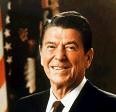
Now, I understand why I wrote mainly about boys. I had enough pride not to do it in real life, and it was nice to have a place to talk about it and figure out stuff. But sheesh. There are times I want to shake myself. Write a little more about that book you are reading, what about your friends? Don't forget the jokes. Scribbling Violent Femmes lyrics was better than
I hope he calls.

Sometimes I drew the clothes I liked. It really is funny to see all these puffy shirts (with buttons down the sides), argyle sweaters and skinny ties. I drew a picture of my hair when I started ratting it up (yes, for a little while, I did that 80s thing. I talked about wanting "theater hair" which was long and flat, but instead I permed it and ratted it. oh boy.). I briefly wrote things like "Gross me out the door" and "Like hi". But that was just fun. I drew a picture of the outfit I wore on my first date with my first boyfriend and what he wore. I wrote about when I first discovered thrift stores and bought myself a trench coat and cardigans.

My memory about what I
read in high school was pretty good. I mention the books I read, but rarely comment on them. I'd write things like: "I read
1984. It was really really good." I wrote this about Dickens on 10/4/86:
I'm starting to get into Dickens. He is pretty flowery and at first it's hard to get used to. But he has a sense of humor and a way of understating things to seem commonplace but he's really showing you how terrible it is - the commonplace is terrible. It's hard to express. It's good.
The weirdest thing about reading this was to realize how messed up your memory can be. And I think of myself as having an excellent memory. There was a lot of stuff that I remember really well now that I've read it again, but if I hadn't written it down, it would be long gone. And, then there's stuff that even after reading about it, I'm still saying, "Huh, when did that happen?" "Who was that guy?" "What am I talking about?" When I was 21, I wrote about my first day of kindergarten and I'm telling you there is zip left of that memory. No idea.

I also have this notion that in high school and college I did nothing but make jokes. I did make a lot of jokes, but there's a lot of talk about studying and research papers and stress. When I was 15, my mom got sick (polymyalgia rheumatica, a rare condition that is similar to arthritis) and I write a lot about helping out. Which surprises me.
In 11th and 12th grade there were a lot of really busy days. I'd go to early morning seminary, school, have play practice (or speech or knowledge bowl or swing choir), come home and practice piano for an hour, clean up the kitchen, study Adv. Math (or Physics or Adv. Biology or Chemistry), work on a paper, do personal reading, read my scriptures, write in my journal and go to bed. I also found time to talk on the phone
a lot and write letters - I never do that now. I'm sure there was plenty of downtime ('cause that's what I remember), but I wasn't a total slug.

It's funny how time, distance, and knowing what happens in the end give you such a different perspective. Although the only advice I'd probably give myself is
Don't get a perm.

Sitting in the Wishing Chair (Watercolor of mine from 1990)The only time I cried was when my husband broke up with me. It's a little strange because I know it has a happy ending, and it all works out, but I felt bad for me.

It made me really grateful that we did get married. It could have gone the other way and while I'm sure it would have worked out in it's own way, I'm beyond happy that things settled where they did.
I thought reading all of this would make me incredibly nostalgic. It did, but more than that, it made me really (like, really) grateful.
Saturday, March 19, 2005

T.V. fat

I'm TV fat.
Now, if you knew me, I'm sure you'd say, "No! You're not fat!" and try to reassure me for too long that I'm not fat. But, I didn't say "I'm fat" (although if I were 300 lbs instead of 120, you probably still wouldn't be comfortable admitting I was fat to my face), I said I was
TV fat. I'm telling you if I went on Survivor, I'd probably become known as the chubby Mormon mom.
There's a big difference between TV fat and regular fat. To
not be fat on TV, you basically have to be borderline anorexic. And the difference between TV fat and TV thin is only about 5 or 10 pounds. A little while ago, US Weekly had a cover called "Flab to Fab" and had a picture of Jessica Simpson looking like she weighed maybe 110 pounds (her 'flab' picture) and one that looked like she weighed 100 (her 'fab' picture).
Look at the people who have been called fat on TV and in magazines like US Weekly:
Kelly Clarkson, Kate Winslet, Alicia Silverstone, Britney Spears, Jessica Simpson, J. Lo, Melissa Joan Hart, Renee Zellweger, Nicole Richie. None of these girls are probably bigger than a size 4, if that.
Oprah could be listed, but instead of being TV fat, she's Oprah thin. Because we know what she looks like when she is actually fat.
Renee Zellweger gained her weight for a part. But, is Bridget Jones really fat? And, is gaining 20 pounds really a big deal?

I met Connie Chung once. This woman was tiny. I mean, she looked like a fragile twig that you could break in two. Before I met her, I wouldn't have said she was fat, but I would have said she had kind of a wide face, a "TV" fat face. Not in real life.
The thinnest I've ever been is 100 pounds. I was in Japan, working and walking a lot and eating very little. It didn't last very long (because to stay 100 pounds, you don't eat. very. much.), but I liked being TV thin. One of the girls I worked with told me one day, "If you lose anymore weight, you'll wind up in the hospital." That was one of the nicest compliments anyone ever gave me. She meant it as one, and I took it as one. I'd like to think that would not flatter me
now.
Anyway, I'm just glad I live in the real world. Because I'm TV ugly, too.
Friday, March 18, 2005

Homage to the Square

In 1959, Josef Albers created a series of fairly boring paintings entitled 'Homage to the Square'. These aren't particularly satisfying to look at, and they aren't particularly tricky to create. I wouldn't buy these paintings except as an investment.
That said, I think Albers hit the Modern
zeitgeist right on the nose (and when I say Modern, I don't mean modern as in contemporary, I mean Modern as in early 20th century to the early 1960s, sometimes edging into the 70s).
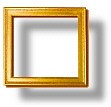
This is what Modernism is all about. It is one massive homage to the square. Painting and sculpture are not all literally squares, but often are. To be a Modern painting is to care mainly about shape, color, and it doesn't hurt to be really, really flat.
Frank Stella and Jasper Johns are the giants of Modern Art, and it's all because of that square. Robert Rauschenberg got a lot of attention for painting canvases in all white (The "white paintings" contain no image at all. They are said to be "so exceptionally blank and reflective that their surfaces respond and change in sympathy with the ambient conditions in which they are shown". Hmmm... sounds like a white square to me).

Minimalist sculpture generally contains a lot of repeated squares. This is quintessentially Modern. Donald Judd is my favorite minimalist (although I'd be hard pressed to even
name another minimalist), and he's almost all squares, almost all day.

But, where the square really comes into play, where you actually see almost nothing but square is in architecture. Go onto any college campus, any downtown, you'll know which buildings are built after 1950 and before 1975 because it's all straight, perpendicular lines.
To be post-modern is to add columns, circles, arches, and something, anything, besides a square.
Thursday, March 17, 2005

Black and White

This year the girls and I are reading a Children's Bible every morning. We recently finished the Old Testament and have been enjoying the New Testament. A few days ago I read the story about Jesus being tempted in the wilderness.
In the middle of the story Lillie says, "Wait, what do you mean, the devil?" [
she puts her fingers by her head to indicate horns] "They're not real, right?"
Grace jumps in, "Jesus had just been fasting for 40 days. He was probably really hungry and just had a vision or something."
That's my sweet rational girl. I was tempted to leave it at that.
I want my girls to strongly believe in God. I don't particularly care if they have strong feelings about Satan's existence. Because, frankly, I'm not sure where I fall on that subject.
I said, well, if it actually happened or it was just a vision, does it change the meaning of the story? They said no. So, we talked about what this was trying to tell us. Then, I said that there weren't devils with horns or tails, and Satan isn't going to talk to
us. We talked a little bit about the war in heaven. They know about this from church, and I thought this was a safe way to talk about Satan.
It ended up being a good conversation. But, man, this parenting thing is hard sometimes. I want to be honest with my girls - and I was - but it's hard to say the right thing sometimes.
I totally believed in the existence of Satan when I was growing up. When I was trying to
figure out my faith I decided I didn't believe in hell or any kind of evil incarnate. Now, I just feel like I don't know. I'm open to the fact that I don't have any answers. If Satan exists then he exists, whether or not I believe in him.
There is evil in this world, and I don't know what forms it takes. If Satan is a metaphor, it doesn't change the reality of evil. If there is an actual guy out there, that doesn't change things either.
But, is that something that you explain to a child? My mother-in-law says she felt that you teach your children black and white and when they get older, they'll see the grays. I agree, but I prefer to simply emphasize the white.
Wednesday, March 16, 2005

J. Golden Kimball "The Swearing Apostle"
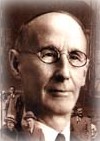
I first heard about "The Swearing Apostle" in Sunday School. Our Sunday School teacher had tons of anecdotes and he liked to talk about him. I don't remember if he quoted him directly or not - I doubt it. I'd forgotten about him until my husband asked me if I'd heard of him.
J. Golden Kimball was the son of Heber C. Kimball and Christeen Golden. He was born in 1853, died in 1938 and was a member of the Seventy, not actually an apostle.
After becoming a General Authority, J. Golden said,
"Some people say a person receives a position in this church through revelation, and others say they get it through inspiration, but I say they get it through relation. If I hadn't been related to Heber C. Kimball I wouldn't have been a d*mn thing in this church."
More anecdotes:
When addressing concerns about the behavior of the youth, Golden told the congregation not to worry about the young people: "They'll be all right. It's all these old bald-headed b*stards on the front row that you need to look out for."
Another time, while in southern Utah to speak at a stake conference, he'd ditched his traveling companion and headed off to a local restaurant for lunch. He was eating - a cup of coffee at the ready - when his companion caught up with him.
Said his horrified and self-righteous companion: "Why Brother Kimball, I'd rather commit adultery than drink a cup of coffee."
To which, J. Golden replied: "Who the h*ll wouldn't."
Tuesday, March 15, 2005

Blog-o-riffic!

My favorite blogs are all on the side bar. Here are the funniest posts that I've read recently.
Thus Spoke Crapples is all jokes, all day.
Sweet Jobs and
Harvesting Coat Hangers are classics.
Dasslug doesn't post enough, but when he does, he can crack out the jokes. I recommend
True Love on Flag Day.
Times and Seasons has a classic post about
The Question You Should Never Ask. In Japan, before we had kids, I was often asked, "Don't you like your babies?"
Ken Jennings is a good one:
Ken Jennings, Part IKen Jennings, Part IIMillenial Star lists
The Ten Commandments of Speaking in Church.
Common Consent makes jokes about callings in the church:
The Calling I Covet.
It's funny. Because it's
real.
Saturday, March 12, 2005

Reading L0l1ta in Tehran
 Reading L0l1ta in Tehran
Reading L0l1ta in Tehran by Azar Nafisi
A novel is not all allegory... It is the sensual experience of another world. If you don't enter that world, hold your breath with the characters and become involved in their destiny, you won't be able to empathize, and empathy is at the heart of the novel. This is how you read a novel: you inhale the experience. So start breathing.When I first heard about this book, I brushed it aside. I've read most of
L0l1ta, and it wasn't for me. But, after I heard a few other people mention it, I decided to pick it up. It's a book that makes you catch your breath and gets you to think.
I loved reading about all the fiction, even
L0l1ta. When I first started reading, I thought perhaps this book would convince me to try it again. It didn't do that, but it did get me to see it in a different light and to consider reading Nabokov's other books (I'm still not interested in re-visiting this young girl's mental and physical victimization, but I can see the parallels to life in Iran during and after the revolution).
Her discussions about F. Scott Fitzgerald, Henry James, and Jane Austen (and numerous other authors) illuminate this book that has so many dark stories. Her love for fiction and the light that it brings to her and her students made me value the power of books in a way I haven't before.
Modern fiction brings out the evil in domestic lives, the ordinary relations, people like you and me - Reader! Bruder!
as Humbert said. Evil in Austen, as in most great fiction, lies in the inability to "see" others, hence to empathize with them. As I read about the impact the revolution had on the women's lives in this book, I realized that the reason I don't identify myself as a feminist is that I do not feel that my political rights are threatened. If I thought that my voting rights, my religious rights, or my right to free speech were threatened because I was a woman, I would become an activist in a nanosecond. If I felt it were safe to do so, anyway.
These women aren't safe. Many of them experience what happens when people are able to view and treat others with almost no empathy.
I saw some similarities between this book and the books that I have been reading on the Holocaust. When reading about the WWII, I was struck by how recent this is in our history. Anne Frank was born a year before my mother. Reading this book hit even closer to home. I remember the hostages in Iran and I remember Khomeini. This book made me want to learn more about the modern history of Iran.
This book wasn't all light and sensation. There were times when the author's voice was a bit grating, there were things that I didn't understand (her first marriage, and when she spoke of 'my magician' so intimately, but she didn't let us into either relationship... and I wasn't sure I even wanted her to), she gives little historical context, and sometimes I was bothered by her generalizations about Islam and men. But given her experiences, I'm not sure she could have spoken her truth and made me comfortable (and being uncomfortable can be a good thing). It wasn't the perfect book, but it was definitely worthwhile.
Friday, March 11, 2005

Instant Nostalgia

It doesn't take much to get me nostalgic. I had great times in high school and college, and when I hear music from the 80s and early 90s, I enjoy indulging in nostalgia. Right now, I'm cranking up a little Paul Simon and feeling vaguely nostalgic about our early married life in Japan.
When I'm 70 or 80 (and hopefully still feeling good enough to be taking a lot of sweet vacations like my grandma did) I'm sure I'll look back at my youth with happiness and longing. But, the time I'm really going to yearn for is the life I'm living right now.
Although I have more wrinkles and responsibilities, I know this is the time of my life. And, it's all because of my girls. Every morning I get to wake up and peek in on them, sleeping. Their soft angel faces are peacefully relaxed. When they wake up, I get to kiss their sleepy, slightly confused faces and get their chilly little selves blankets and breakfast.
The whole day is mine to be with them and enjoy them. I get to see all their jokes, all their giggling, tears, frustrations, and play. I'll always be a mother, but right now is when they rely on me the most. These years of mothering are truly the fabulous years and I'm going to enjoy them while they last.
Thursday, March 10, 2005

The Futurists
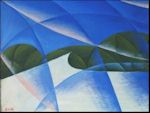
There were -isms cropping up right and left in the 19th and 20th centuries. One of my favorites has to be Futurism. Futurism was a broad art movement that began in 1909 in Italy. It included painting, poetry, music, literature, theater, sculpture, architecture, and photography and gave rise to the first truly modern art.
The Futurists, were young, bold, and full of bull and bravado. Some of their art has not stood the test of time, but much of it has.
Here is a portion of one of their many manifestos:

Manifesto of the Futurist Painters: February 10, 1911
Umberto Boccioni, Carlo Carrà, Luigi Russolo, Giacomo Balla, Gino Severini
TO THE YOUNG ARTISTS OF ITALY!
We rebel against that spineless worshipping of old canvases, old statues and old bric-a-brac, against everything which is filthy and worm-ridden and corroded by time. We consider the habitual contempt for everything which is young, new and burning with life to be unjust and even criminal...
With our enthusiastic adherence to Futurism, we will:
- Destroy the cult of the past, the obsession with the ancients, pedantry and academic formalism.
- Totally invalidate all kinds of imitation.
- Elevate all attempts at originality, however daring, however violent.
- Bear bravely and proudly the smear of “madness” with which they try to gag all innovators.
- Regard art critics as useless and dangerous.
- Rebel against the tyranny of words: “Harmony” and “good taste” and other loose expressions which can be used to destroy the works of Rembrandt, Goya, Rodin...
- Sweep the whole field of art clean of all themes and subjects which have been used in the past.
- Support and glory in our day-to-day world, a world which is going to be continually and splendidly transformed by victorious Science.
- The dead shall be buried in the earth’s deepest bowels! The threshold of the future will be swept free of mummies! Make room for youth, for violence, for daring!
I probably would not have been fond of them if they were my contemporaries. But with some distance, all their piss and vinegar is very entertaining.






 Anne Sexton (1928–1974)
Anne Sexton (1928–1974)
























































































